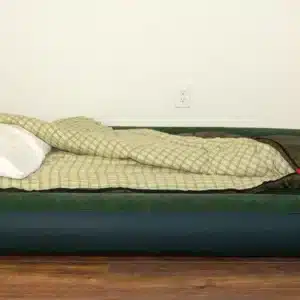“You can’t even walk,” he said.
Not with pity. Not even surprise. Just disdain, curling from his lips like smoke from a dying fire.
She didn’t flinch.
Elena sat motionless, spine like steel, eyes like glass. She studied the man who once shared her bed, her toothbrush, her softest secrets. Now, he hovered like a shadow in her doorway, dragging behind him a woman who wore her perfume like armor.
“Why are you here?” she asked. Her voice was flat. Not angry, not wounded — just drained, like an echo in an empty hospital wing.
He cleared his throat, but it didn’t clear the guilt from his eyes. “I thought it was best… if I told you myself. Before someone else did.”
“Spare me your decency.”
“We’re moving,” he said quickly, pushing through.
“To the apartment. Yours. I mean… ours. The one we shared before…”
He gestured vaguely toward her legs, then dropped his hand as if it were ashamed of itself.
Beside him, the other woman — blonde, impeccable, scentless as antiseptic — smiled faintly. Not kind. Not cruel. Just… victorious.
Elena reached for the folder on the table. It was already there, already signed. She had known this would come.
She handed it to him with the calm of a nurse delivering discharge papers.
“It’s all there. The will. The deed transfer. Everything.”
He blinked. “You’re giving it to us?”
The woman stepped forward half a pace, then thought better of it.
“Just like that?” she asked.
Elena nodded.
“I have no use for it anymore. I’ve got other things to do.”
He laughed — sharp, cruel. A nervous reflex.
“Other things? You can’t even walk!”
She closed her eyes. Just for a moment.
When she opened them again, her gaze had changed. It wasn’t anger that filled her — it was something older, colder. Clarity.
She untucked the cane from under her chair, threw the blanket aside. The woman gasped. He said nothing.
And then Elena stood.
First one step.
Then another.
The sound of the cane against hardwood echoed like a clock ticking on the edge of some unseen deadline.
“I was in an accident,” she said. “Not condemned.”
He swallowed hard. “But… the doctors. You said—”
“I said what you needed to hear. And you did exactly what I needed you to do: leave.”
She walked to the door with quiet confidence. She didn’t look back—until she did.
“You took my home,” she said softly. “I took your freedom.”
“What?” the woman snapped, her voice tight.
“What do you mean?” he asked. But his voice was already unraveling.
Elena gave a faint smile. One not born of joy, but justice.
“Read the file,” she said. “Carefully. Especially the last page.”
She turned the knob.
The cane tapped once, twice, three times as she disappeared down the hallway.
Inside, silence didn’t descend — it detonated.
He opened the file with shaking fingers. Turned a page. Then another. Then one more.
And stopped.
The color drained from his face like ink dropped in water. His mouth moved, but no sound came.
The clause was simple. Cold.
“Transfer of property is effective only upon acceptance of full, irrevocable custody of the minor child named herein, born of the extramarital relationship between [REDACTED] and [REDACTED].”
A beat passed. Then two.
“You didn’t say anything about a child,” he croaked, looking at the woman beside him. But her face had turned to porcelain.
Elena’s words floated back, almost like a lullaby:
“Because… it’s not yours.”
Then — only the fading sound of her cane, rhythmic and unhurried.
Each step a sentence.
Each echo, a verdict.
She didn’t slam the door behind her.
She didn’t need to.
The silence she left was punishment enough.





